“The hum of the bees is the voice of the garden.” ~ Elizabeth Lawrence
Good morning, my friends. I am so happy to see you. This morning I would like to share some thoughts and information about our ‘precious’ friends ~ the bees. I have been paying close attention to them this summer, especially since we have a rather large stand of zinnias in our garden, full of bees that don’t know which bloom to visit first.
Now, in my reference to them as ‘precious’ friends, I am not inferring they are precious in the sense of darling or cute. Rather, vital and extremely important. I am certain you are totally aware of the environmental and other issues facing the bees. Today, I not only want to talk about these issues but other interesting facts and folklore you may or may not know. And, if the bees are not currently on your ‘friend list,’ perhaps at the conclusion of your visit you will be inspired to make new friends.
You may want to find your coffee or tea and make yourself comfy. There is much to say about these wonderful friends of the earth.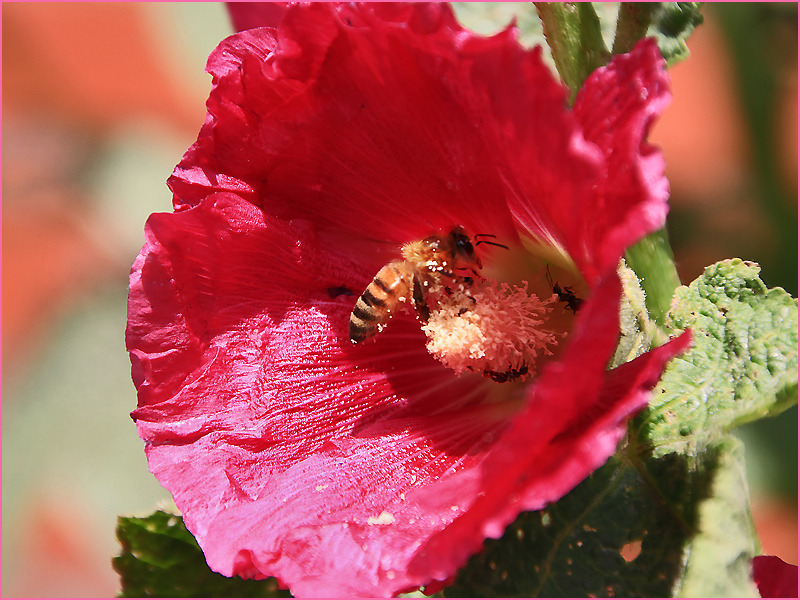

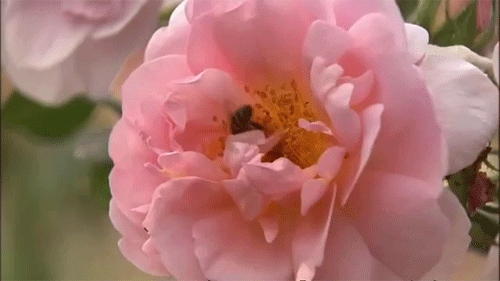
Are you familiar with a custom referred to as ‘The telling of the bees?’ If not, this is what it means. The ‘telling of the bees’ is a traditional European custom in which the bees are told of important events in their keeper’s lives, such as births, marriages, or departures and returns to the home. If a death in the family occurs and this custom was omitted or forgotten, or the bees were not properly put into mourning, then it is believed there would be a penalty, such as the bees would leave their hive, they may stop producing honey, or they may die. This custom was widely known in England, but it was also practiced in Ireland, Wales, Germany, The Netherlands, France, and the United States.
There are several ways in which bees were informed of a death in the family and, therefore, ‘properly put into mourning.’ In England, the lady of the house would drape the hives in black, hum a song to herself and say for example: “The master is dead, but don’t you leave, I will be your mistress and I will be good to you.” Another description from the Carolina mountains was to knock on each hive until one had the bees attention and then state that such a person, mention the name, was dead.
On a brighter note, bees were also told of happy times, ~ such as weddings. Personally, I can’t imagine bees involved with weddings, however, folklore tells us it is so. In Germany, the custom was for newly wedded couples to first introduce themselves to the bees before going into their home or it was feared their marriage could be unhappy. And, in Scotland folklore tells of inviting bees to the wedding and leaving a slice of the wedding cake by their hive. This may all seem like a bit of rubbish ~ but who knows? In past times there was a great connection and respect between man and other living things which inhabited the earth.

If you need a little something extra to get you moving in the mornings, the following should do the trick. Way back in 1978, Neil Diamond wrote and recorded “The Dancing Bumble Bee Boggie.” Here are a few of the lyrics, “And when the hot winds blow tonight, the dancing bumblebee takes flight. And all the flowers in the field prepare their nectar soon to yield.” While I am quite a fan of Neil Diamond, I am not overly fond of this song, but I do like the music. However, if you have never heard the sound of a swarm of bees, the sound of the music in this piece is almost identical. Give a listen, here.

“The only time I ever believed that I knew all there was to know about beekeeping was the first year I was keeping them. Every year since I’ve known less and less and have accepted the humbling truth that bees know more about making honey than I do.” ~
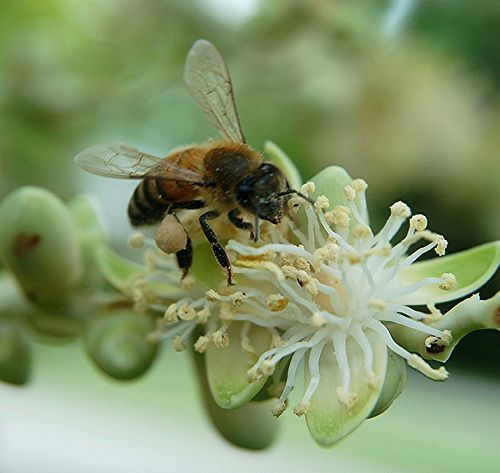
When Mike and I lived in Virginia, he kept bees. At the height of his experience, he had eight hives. We both thoroughly enjoyed the entire process of watching them and Mike taking the honey. (Notice I said, “Mike.”) However, the hurricanes, mites, and aerial spraying of crops brought this time to a close. But, I never forgot the words of our elderly neighbor (Mr. Love) who helped Mike with the bees. One day he was visiting and he said, “You know Mike, what kills the bees will eventually kill man.” Mr. Love spoke true words and he would be ever so concerned as to the plight of the bees, as well as ours, today.
The varroa mite, a parasite that invades hives, and exposure to pesticides are the two largest contributors to the declining honey bee populations. Currently, researchers are looking into how to safely treat the hives for the varroa mite. And there is a great effort underway to educate the public regarding the use of pesticides and the detriment of such to the bees, as well as man. Additionally, researchers are trying to determine what changes we could make to our habitats to encourage bees. The real question is, “What is man willing to do?”

“The bee collects honey from flowers in such a way as to do the least damage or destruction to them, and he leaves them whole, undamaged and fresh, just as he found them.” ~ Saint Francis de Sales
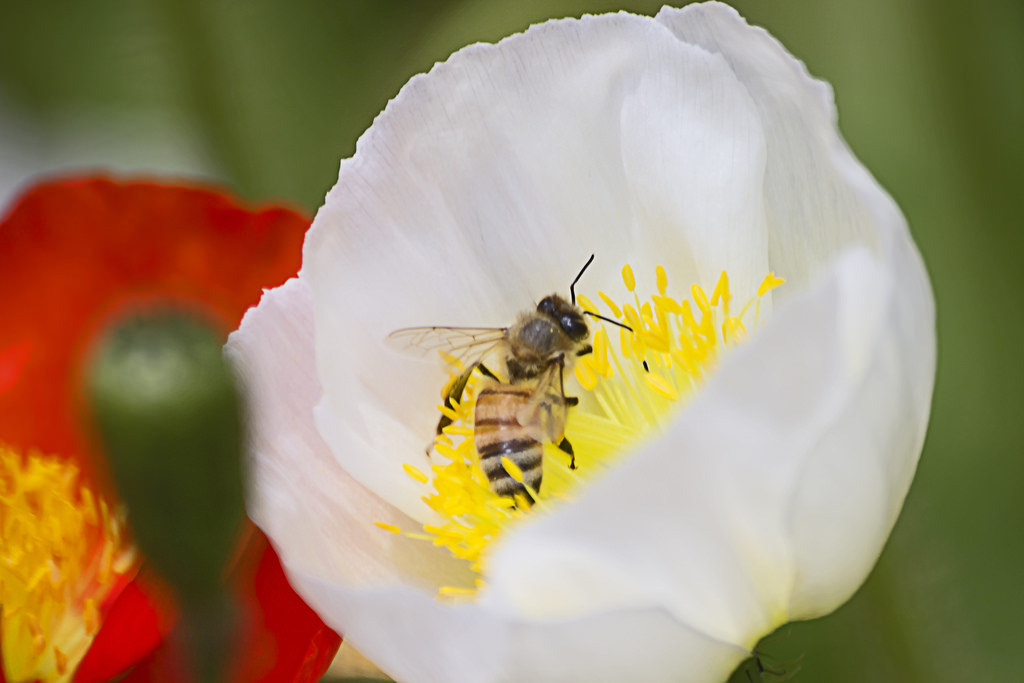
There are, however, many things we can all do to help our bees survive. Some are to plant wildflowers and bee loving plants. A few of these plants are monarda or ‘bee balm,’ honeysuckle, hollyhocks, zinnias, cosmos, snapdragons, lavender, and foxglove. And rather than using a toxic spray for bugs, plant catnip near the plant’s bugs seem to adore. Catnip wards off bugs and also, the bees love it. A two for one.
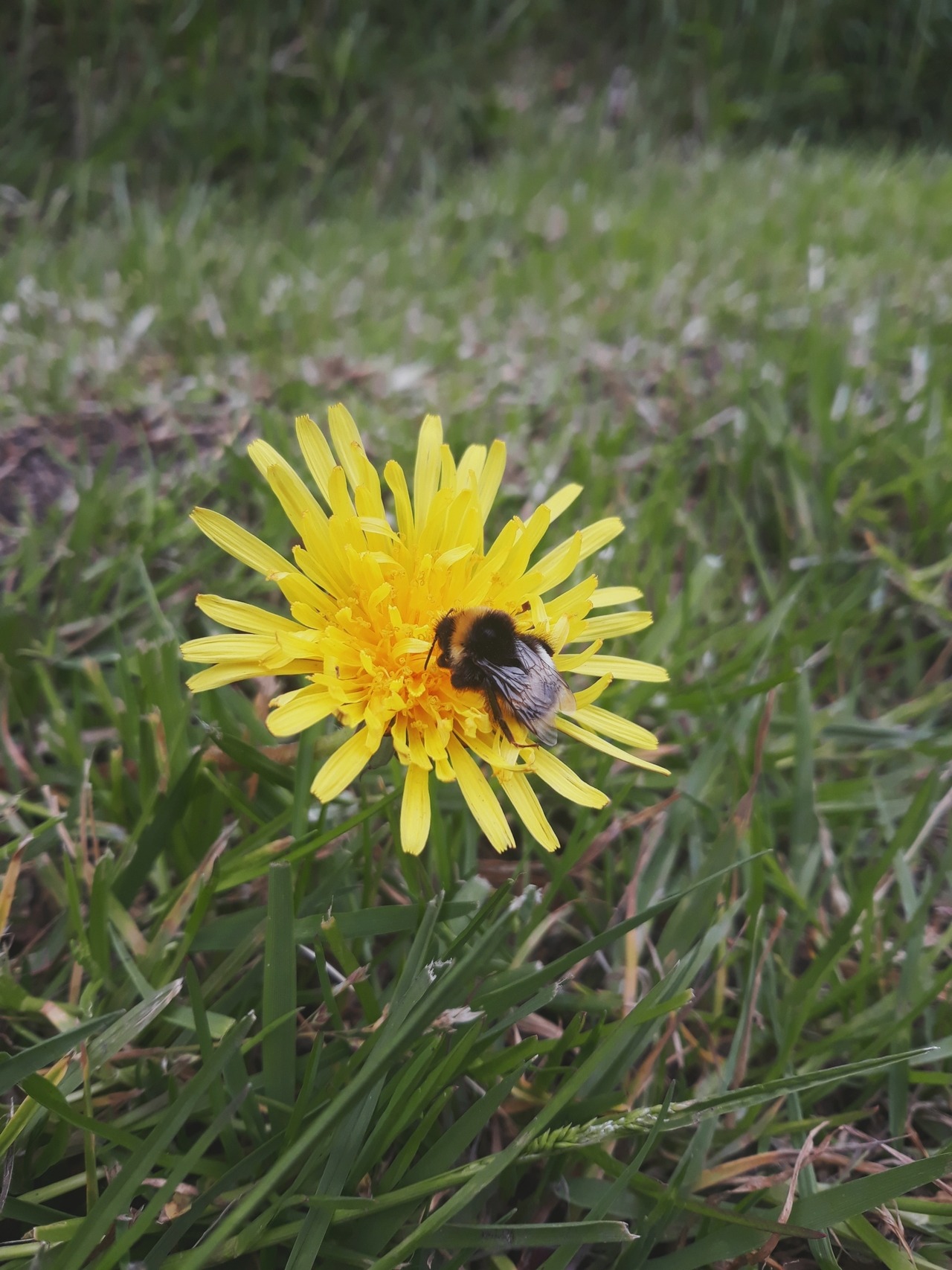
In the early spring, do not destroy the dandelions. They are one of the first sources of food for the bees as they begin to wake from their winter’s sleep.
Should the number of bees and beekeepers continue to decline, we will see higher food prices. Such as in California where 85% of the world’s almonds are grown. Farmers rent bee colonies for pollination and the cost per colony to some have increased to nearly $300 per colony. These prices will eventually come to the consumer.
A recent and most unfortunate turn in the ‘help for the bees,’ came as the U. S. Department of Agriculture announced it has suspended its data collection for Honey Bee Colonies due to budgetary reasons. This came just a few weeks after researchers reported that 40% of the managed honey bee colonies in our country were lost this past winter. This decision was surprising and disappointing to researchers because such information is vital for scientists to be able to understand the long-term trends of honey bees and also allow policymakers to make sound future decisions.
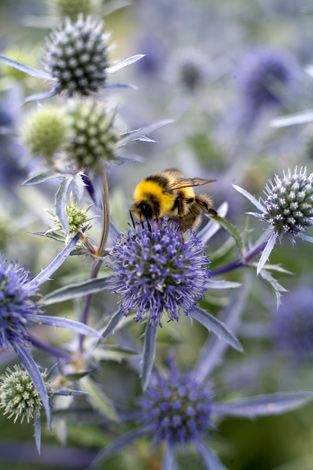
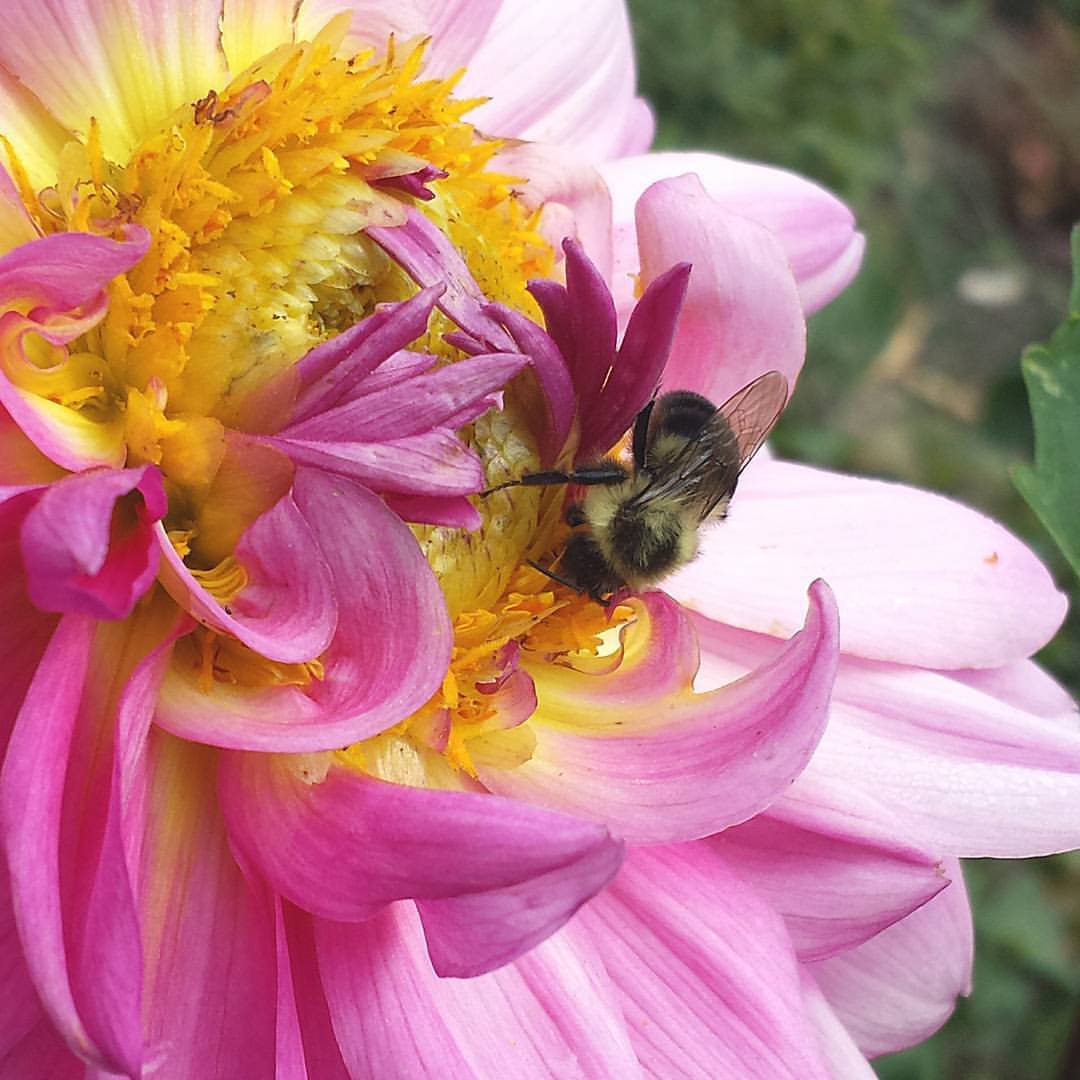
Wishing you a beautiful day. Enjoy these fleeting days of summer.
And…
Come again soon!
Au Revoir,
Sandra
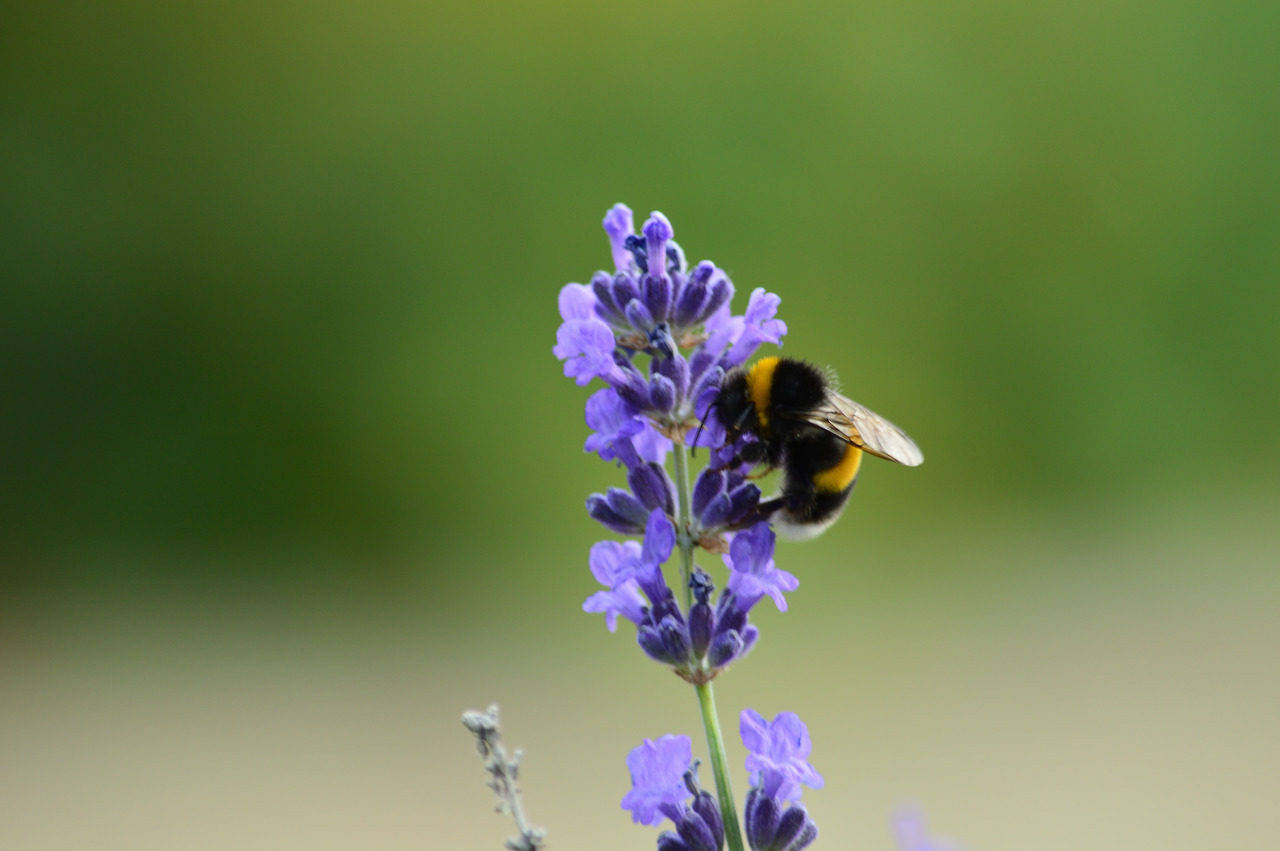
I plant as many bee loving plants as I can and I never use pesticides! Great post.
Thanks, Penny and you are a friend to the bees.
Sandra, what a beautiful post about the “precious bees” that are so vital. Of course, I love all the images and quotes and the important information that you shared about bees. It was all so interesting, I didn’t know any of the folklore. Bees are all over my zinnias, blanket flower, crape myrtles, chaste tree, and they love the basil blooms! I so enjoy chasing a photo opportunity that captures the buzzing bees! Have a wonderful Wednesday!
Many thanks, Pam. Bees are such interesting friends. I do know they enjoy your beautiful garden. Have a lovely day, sweet friend.
Sandra, what a truly informative post. I have lots of purple salvia planted, and I have noticed that the bees love it! I didn’t know about the catnip…I am going to see if it will grow here in Oklahoma. I wonder if it helps with mosquitoes too. I so enjoyed your post, sweet friend! Enjoy your day!!!
Dear Shannon, thank you for your comments. I would imagine catnip would grow in Oklahoma. It loves heat and sun.
I have to tell you how happy I am you are back in the blogging world. Truly, my friend, you were missed. Have a great remainder of the week.
So timely a post, Sandra. Thank you for adding your voice in support of our precious friends. Have to say I loved the quotation you shared by Ray Bradbury: “Bees do have a smell, you know, and if they don’t they should, for their feet are dusted with spices from a million flowers.” Such a sensual statement.
Thank you, Brenda. Our ‘precious friends’ are truly vital to man. Many thanks for your visit and have a lovely day.
Beautiful pictures!Hugs,dear Sandra!
Thank you, Maristella.
What an informative post, and I love the orchestration of that Neil Diamond tune! While I was in the ballet, we danced an original choreography titles the Wasps. The composer escapes me right now, but that music certainly sparked a few memories of that piece. It was frenetic!
Oh, my Rita. What wonderful and special memories you must have. Like I said, “I am a Neil Diamond fan, but not of the song.” However, love the orchestra. Truly to me, it was amazing. Thanks so much for your visit.
I know (knew) nothing of The Telling of the Bees. I like that. Gorgeous images and very cool new info! Now I’m off to check out Neil Diamond!
Thanks for visiting, Jeanie. Happy you enjoyed the post and hope you enjoyed Neil Diamond as well.